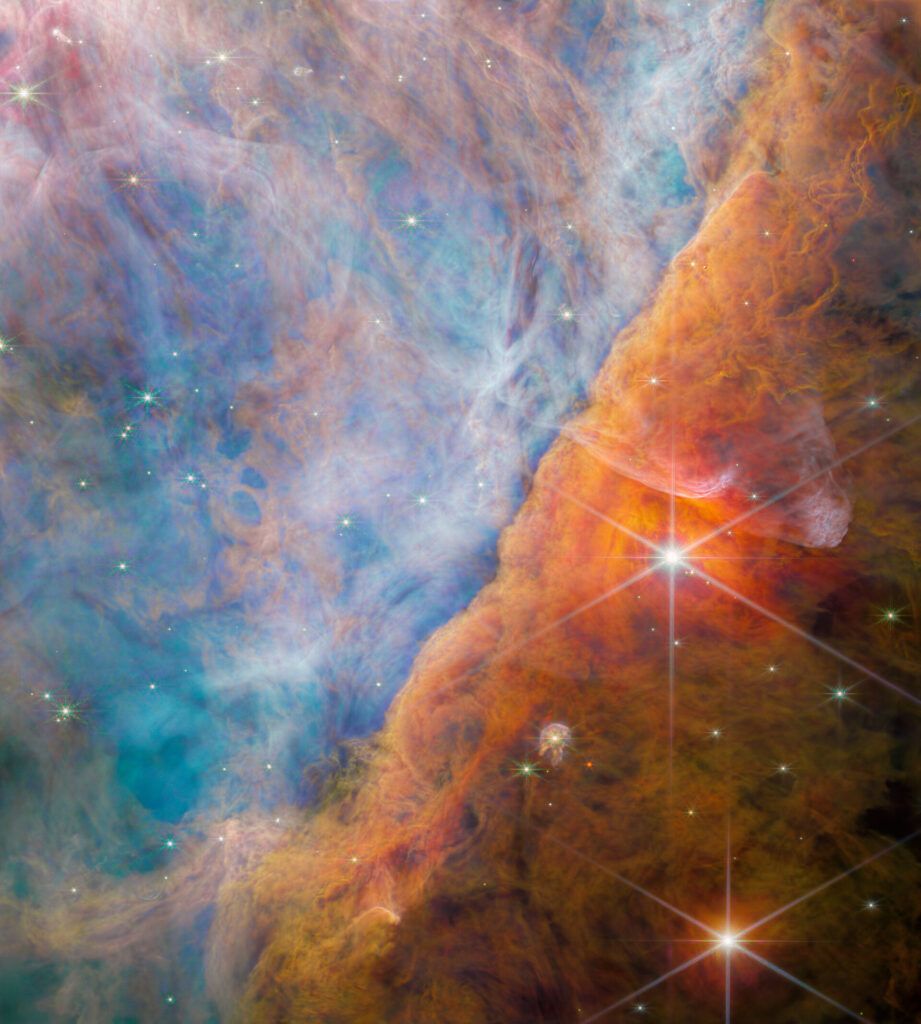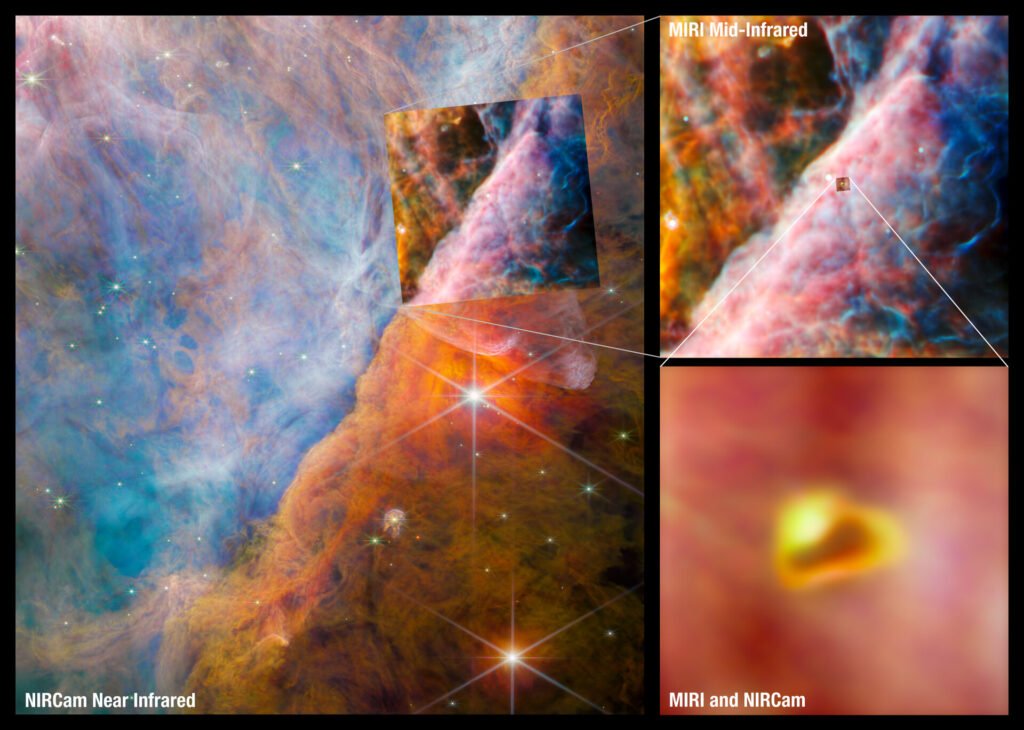Using the James Webb Space Telescope, astronomers have for the first time detected a methyl cation (CH₃+) in a protoplanetary disk around a young star. This compound plays a key role in the formation of complex organic molecules.

The discovery was made during the study of the protoplanetary disk surrounding the star d203-506. This is a small red dwarf that has a mass ten times less than the solar one. It is located at a distance of 1300 light-years from Earth in the constellation Orion and is exposed to intense ultraviolet radiation from neighboring massive luminaries. Scientists believe that most protoplanetary disks go through a similar period because, as a rule, stars are formed not alone, but inside clusters.
Apparently, the presence of the methyl cation is a consequence of this ultraviolet “bombardment”. It provides the energy source necessary for the formation of CH₃+. At the same time, unlike neighboring systems, no water was found in d203-506, which may also be a consequence of exposure to ultraviolet radiation.

What is important about the methyl cation? This compound interacts relatively poorly with hydrogen (the main component of active star formation regions), but reacts easily with other substances. As a consequence, it initiates the formation of more complex carbon-based molecules necessary for the emergence of living organisms. Astronomers have been looking for such compounds in space for a long time, but could only find them after the launch of JWST.
In the future, the researchers intend to continue the search for such compounds. An analysis of their distribution and the chemical composition of protoplanetary disks will help to learn more about how conditions that can lead to the emergence of life are formed in the Universe.
Earlier we talked about whether JWST could find traces of life in the atmosphere of an exoplanet.
Follow us on Twitter to get the most interesting space news in time
https://twitter.com/ust_magazine

